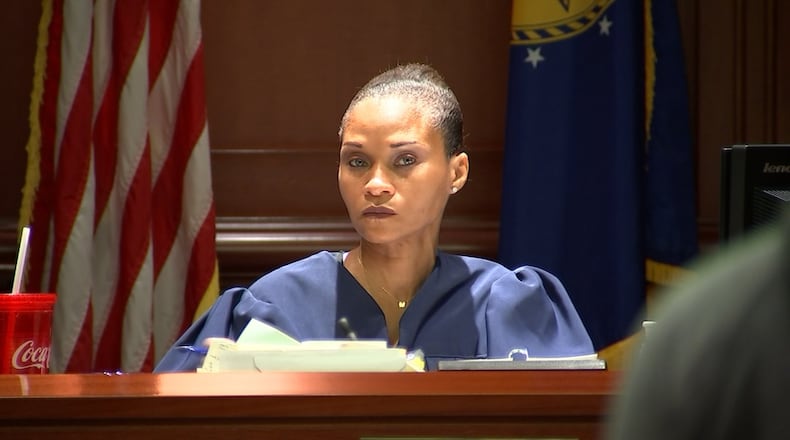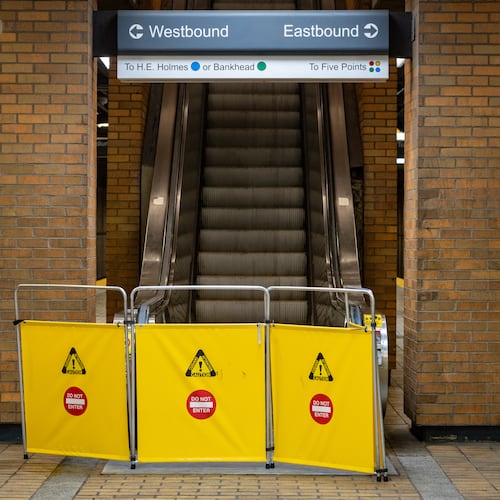The Georgia Supreme Court in August suspended Atlanta Municipal Court Judge Terrinee Gundy for 90 days and ordered her to receive a public reprimand for a number of ethical lapses.
It turns out Gundy received the reprimand on Oct. 5 by Fulton County Chief Judge Christopher Brasher in his courtroom, which at the time was open to the public. But no other member of the public had been made aware of the proceeding.
After being told no public notice had been issued, Brasher set a date for Gundy to return to his courtroom on Friday and receive a second reprimand with the public on notice beforehand. But the Georgia Supreme Court, in an order issued Thursday, agreed with an emergency motion filed by Gundy’s lawyer that a second reprimand was unnecessary.
The court’s order also said the justices were unpersuaded by a state Judicial Qualifications Commission motion that said the “intent and spirit” of the JQC’s rules require a reprimand to be given after the public is given notice about it.
“The commission’s rules ought to require public notice before a reprimand,” the unsigned order said. “But they plainly presently do not.”
The court noted that Brasher gave Gundy the reprimand “in open court,” which he was required to do.
Gundy got in trouble for routinely showing up late for work and missing 122 days of work from January 2016 through July 2018. And she was accused of taking steps to conceal her tardiness and absenteeism, court records show.
She also refused to allow six defendants to be brought to her courtroom from the jail in March 2017, which resulted in them being incarcerated for about a week after they should have been released.
In his reprimand, Brasher told Gundy that her “improper actions” led the state Supreme Court to find that she “failed to respect and comply with the law, to act in a manner that promotes public confidence in the independence, integrity and impartiality of the judiciary, and to perform your judicial duties competently.”
Brasher also warned Gundy that any repetition of such conduct “can and will result in punishment of the severest possible nature.”
In court filings, top officials at the state JQC explained how Gundy’s “public” reprimand was done in relative secrecy. Their motion said that JQC director Chuck Boring first learned of the Oct. 5 reprimand when Brasher told him about it a week later during a phone conversation about an unrelated matter.
Upon hearing that, Boring told the chief judge that neither he nor the public had been prior notice about the reprimand, the motion said. Brasher later called Boring back and acknowledged that his staff had mistakenly failed to notify the JQC of the reprimand date, the motion said. Brasher then set a date for the second hearing.
In its filing, the JQC attorneys said they agree that what happened was “an innocent mistake.”
But the JQC still believed Gundy should have had to return to court for her second reprimand. Her proceeding stands in stark contrast to prior occasions when problem judges were given reprimands because in those cases, the public had been given prior notice, the commission’s motion said.
Gundy’s reprimand, the JQC said, “was not ‘public’ in any real or appreciable way, essentially rendering the ‘public’ reprimand toothless.”
About the Author
Keep Reading
The Latest
Featured




